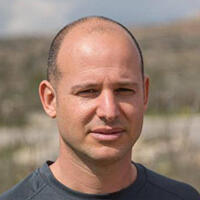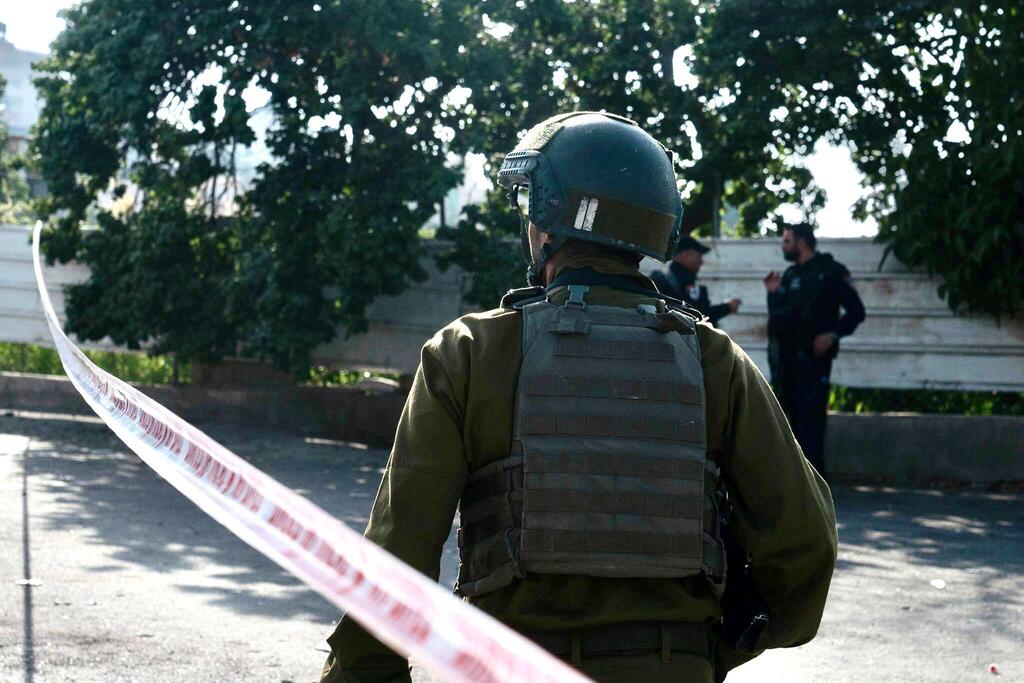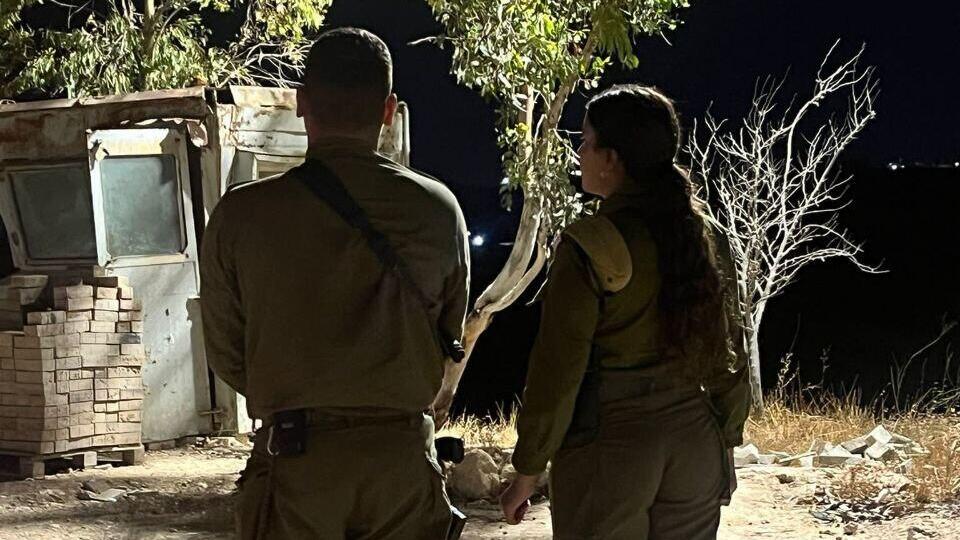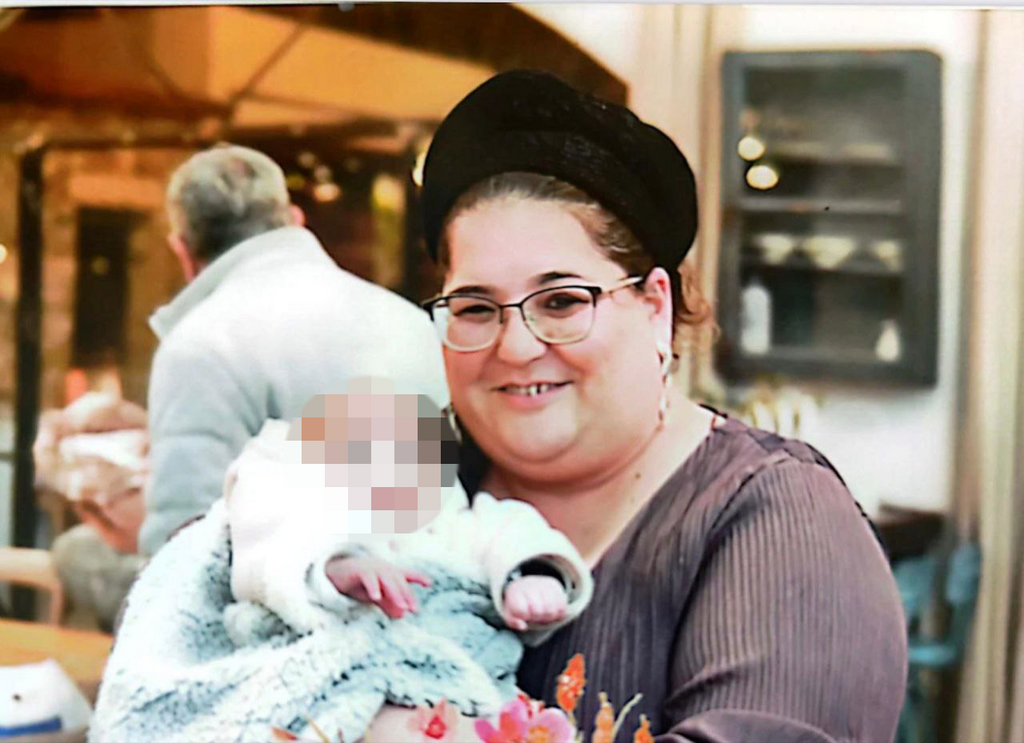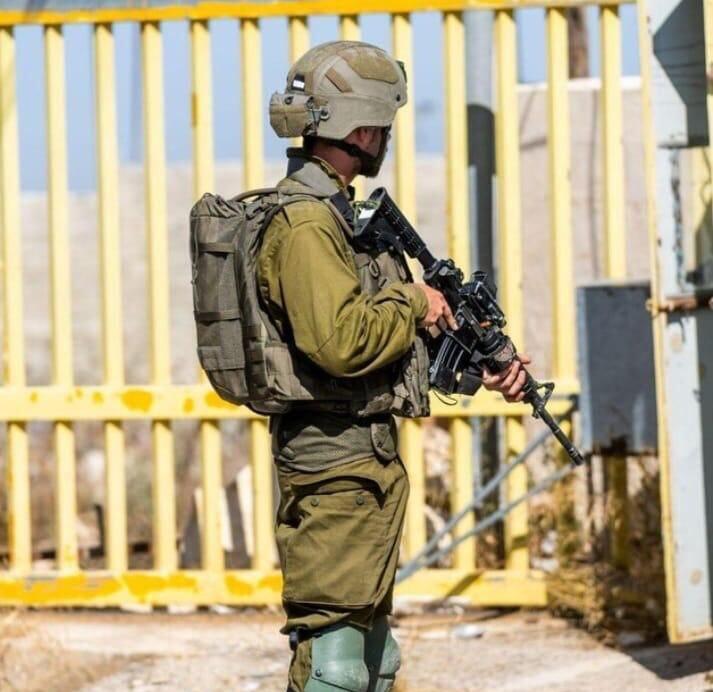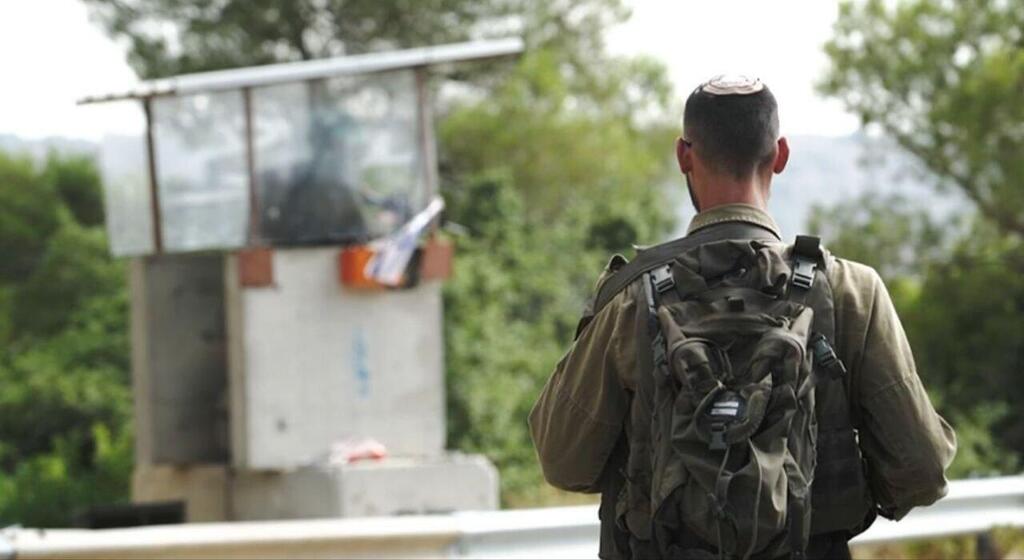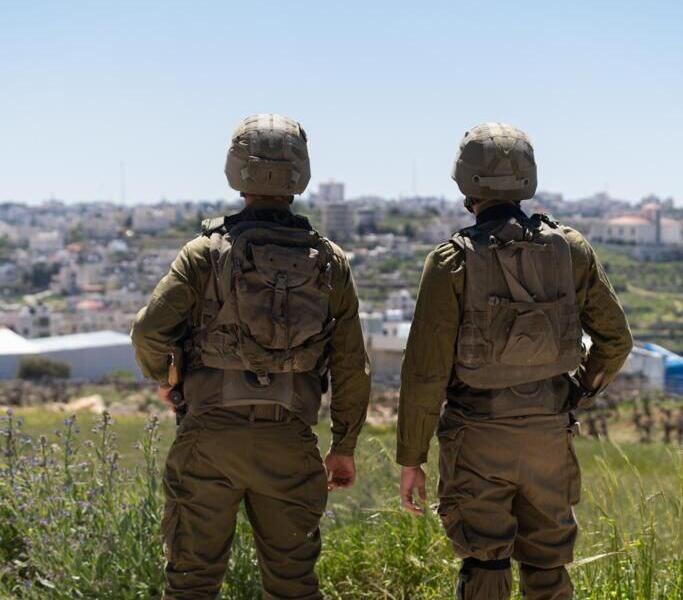Getting your Trinity Audio player ready...
The past year in the West Bank has been rife with terrorist activity which killed dozens of Israelis. Central Command and the Judea and Samaria Division are doing everything to minimize the number of attacks, through thwarting imminent terror plots, arrests and raids.
Read more:
Interestingly, the soldiers tasked with security missions on the ground represent the first line of defense against terrorists. In many instances, they have successfully prevented attacks at the last moment.
A special project by Ynet and Yedioth Ahronoth brings forth the stories of four soldiers who acted under fire, saving lives with their precision, vigilance and rapid response. Their names and images are withheld from publication due to concerns of them becoming targets for incitement by terror organizations in the West Bank.
One-on-one with the terrorist
The case of Corporal S., 20, from the Judea Brigade and the soldier accompanying him during an administrative drive to the base, illustrates the extent of the tension in the West Bank and how alertness can save lives.
On August 1, the two identified a suspicious figure at a bus station near the settlement of Eshtemoa in southern Hebron. They took cover, approached the suspect, who then brandished a knife at them, and neutralized him with gunfire.
"We were driving near Eshtemoa and identified a suspicious person who didn't 'fit the scene' sitting at the bus stop. Usually, Palestinians aren't found there, just Israelis. It was very close to the settlement, so we became suspicious," he recounts.
"As we took cover, he probably spotted us and moved to the opposite station. We approached him, initially speaking from inside the vehicle as part of a routine check. We noticed he wasn't responding to our queries, so I decided to step out of the car.
"I told the soldier with me that I was going to talk to him. I advanced, and he stood right in front of me. I asked, 'Why are you stopping here?' In a split second, he drew a knife and tried to stab me. I immediately took a few steps back, readied my weapon as he continued charging at me with the knife. I fired a warning shot into the air, but he continued running onto the road towards the settlement, intending to stab people there. I fired at him until he was neutralized.
“This was my first encounter with a terrorist – it's a bit nerve-wracking, but there's also a sense of exhilaration because we prevented a potential attack on civilians. It could have ended entirely differently."
Unlike the northern West Bank, the Judea sector had been calm, only recently erupting with a shooting attack at the entrance to Tekoa and the murder of Bat Sheva Nigri. Do you feel the difference?
"I was among the first to arrive at the scene of Batsheva's attack, may she rest in peace. It happened very close to our base. The sights were devastating. I was on my way for another task from the base when we received a report about the incident and rushed there.
“I saw her car riddled with bullets. One of the officers who arrived just in time took her child out of the car and turned the child's face away so as not to see her mother and the other wounded person. We waited for the paramedics and began to care for the injured. It's harrowing to imagine what she saw. It's hard to even fathom. This is a sector that has been awakened, but we are always on alert."
A personal circle closed
Just a few days earlier, on July 25, an event took place that Y., 19, will not forget for a long time. Y., a combat engineering soldier in the Samaria Brigade who had been looking forward to serving near his home, viewed the incident as a personal closure and as defending his home and family. He, his commander, and another soldier were attacked at Tel al-Ras by three armed terrorists. They managed to neutralize them and emerged from the incident unharmed.
"We manned a position called Tel al-Ras, and part of our mission was to run a checkpoint at the entrance for workers from Nablus, coming from Mount Gerizim. We arrived at the position at 6 in the morning, and around 6:10 a car arrived, pulled over a few hundred feet from us, and waited for a few minutes on the side. I was at the post and couldn't see them because they drove into a parking lot."
"The car doors opened, and several individuals stepped out. I didn’t see any weapons. This is quite usual as there are homes and shops nearby. What made me more vigilant was them suddenly stopping. Suddenly, I heard gunshots. I identified a suspicious black-clad figure standing at a corner with a weapon and a flushed face. I immediately fired at him from about 100 meters away. I saw him retreat behind the corner, injured.
"My unit commander joined me. He said, 'Another soldier and I are advancing; you’ll stay behind to provide backup.' He crossed the road toward the shooter, they both advanced, and then I jumped in and joined them. All the while, they were shooting at us, and we returned fire; it was an intense gunfight."
During the advancement, did you realize there was gunfire coming from different directions?
"I identified someone in front of the car, firing shots, and they hadn’t seen him at all. I fired back at him. In those moments, it was clear to me, it was either us or them, no other option. I felt I had to do everything to neutralize them because I knew what would happen if they managed to get past us."
So, you started to close in on him together?
"Yes, we entered an alley about 20 meters before the car. We reloaded, advanced again with a swift move to the street, reached the car, confirmed they were neutralized and then waited for reinforcements. When they arrived, they checked the car for explosives, removed their bodies, identified them, and an investigation ensued. Upon inspection, we were stunned: they had three M16 rifles and a pistol in the car, equipped with communication devices and headphones. They had planned a massacre.
7 View gallery
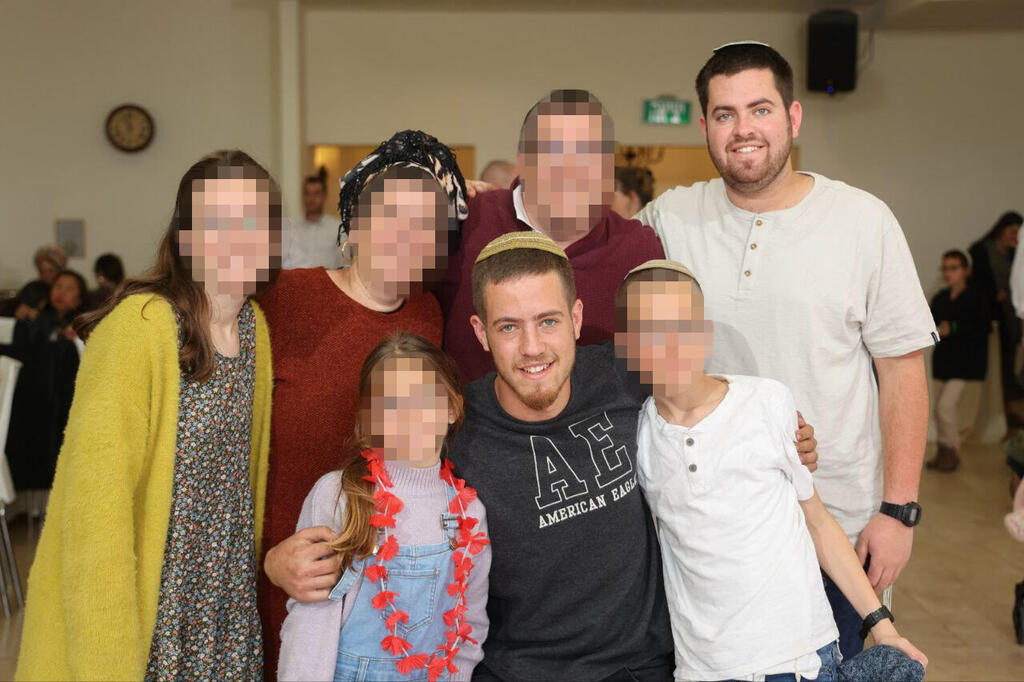

Yagel Yaniv (upper right corner) and his brother Hallel who were murdered by a terrorist in Huwara
(Photo: Courtesy of the family)
“For me, this is a full-circle moment, not only because I live in the area but also because, six months earlier, my friend Yagel Yaniv, may he rest in peace, was murdered alongside his brother in Huwara. Yagel and I had been friends since elementary school, from first grade. We went to high school together, and even afterward, we remained close."
Vigilance saves lives
On July 10, A., 20, a soldier in the Duchifat Battalion, went with three of his comrades for guard duty. A car without a license plate that stopped near them aroused their suspicion. Initially, the driver claimed his car broke down. However, when asked to exit the vehicle, he pulled out a grenade and threw it at the soldiers. A shootout ensued and they neutralized him.
"At 11:00am, we began our guard duty — two guards on active duty and another two resting close to the post. Two soldiers spotted a car that had stopped at a bend, about 150 meters ahead of us, with a white license plate. I immediately put on my vest and reported the situation. I approached the vehicle since it looked suspicious to me, but I couldn't see how many people were inside or if they were armed.
“We moved to a higher vantage point. The other two soldiers remained at the post, keeping a close watch on the vehicle. I began speaking to him from my elevated position, asking, 'Who are you, and what are you doing here?'. He replied in Arabic that he was waiting for a friend to bring him spare car parts. Throughout the conversation, I was still in a position where it was hard to clearly see him and identify him - meaning to ascertain that he wasn't a terrorist. I moved back toward our post, began to approach him slowly with another soldier, aimed my weapon and chambered a round."
What happened with the terrorist as you approached him?
"He was extremely anxious, repeatedly saying 'everything's fine' and 'I'm waiting for a friend.' He looked quite nervous and unclear. We halted about 15 meters away from him while he was still inside the car. I instructed him to come out. He kept insisting, 'I'm waiting for a friend,' and then he suddenly opened the door and hurled a grenade at us — it passed right above me because he threw it too hard. I opened fire and yelled 'terrorist,' shooting at him alongside the soldier with me. He was hit, but during the shootout, he managed to reach back into the car and grabbed a Carlo gun that was on one of the seats. He fired several shots at us before he fell, neutralized.
“After he threw the grenade, I lost sight of him for a few seconds; he was hit and fell, and only later did I realize he managed to grab the Carlo and open fire. Upon inspecting the vehicle, we discovered that he had three more grenades and additional ammunition for his weapon. Ultimately, it turned out that his grenades were makeshift, self-made with explosives, primarily meant to create noise."
"The fact that he stopped a few hundred meters from the checkpoint, and the vigilance of my soldiers, saved their lives"
Was he on his way to commit a major attack?
"Absolutely. He had work permits, which meant he could have easily entered one of the settlements or just approached our position to shoot the soldiers. The fact that he stopped a few hundred meters from the checkpoint, and the vigilance of my soldiers, saved their lives.
“The entire incident could have ended very differently, for instance, if he had shot at us initially instead of throwing the grenade, or if he continued driving toward us and ran us over. He had many options. There's no doubt that my life was spared.
“Immediately after the incident, we received immense support and reinforcement from the battalion, the division and essentially everyone. Such support is incredibly uplifting after events like this."
Neutralized the terrorist who injured his friends
On April 1, a terrorist suddenly drove toward an army Hummer where Staff Sergeant Y. (21), a soldier in the Shaked Battalion of the Givati Brigade, stood along with four other soldiers.
The attacker charged at the vehicle on Highway 60 near Gush Etzion Junction, hitting three of the soldiers and injuring them. However, Y. and another soldier who was unharmed engaged the terrorist, shot at him and neutralized him.
"We held a position near the Gush Etzion area, close to the Karmei Tzur settlement. Among other tasks, we secured main roads and carried out arrests. The incident took place on a Saturday evening, just after sunset. We were stationed with our jeep, guarding a main road according to standard protocol, and we had also trained for vehicle-ramming attacks.
“About an hour and a half into our shift, we suddenly noticed a car speeding toward us with high beams on. It was evident that the driver intended to crash into us. When he was several feet away, traveling at high speed, he swerved right and crashed into our jeep. As a result, three of my comrades were injured, some of them seriously. I was a short distance from the Hummer and was thus unharmed. I immediately fired at the attacker, along with another soldier who was unharmed, and we neutralized him.
“The entire incident lasted less than a minute. After our shots, the attacker tried to get out of the car with a knife. People don't realize that a car-ramming attack can happen in seconds, and the speed of response is crucial. Unlike other attacks where, once a terrorist draws a weapon, you are clearly in an emergency situation, a ramming attack can also be mistaken for an accident."
"It's terrifying. You always tell yourself after hearing and reading about attacks, 'It won't happen to me. What are the odds?' But that's why we've been trained for"
What goes through your mind in those moments?
"It's terrifying. You always tell yourself after hearing and reading about attacks, 'It won't happen to me. What are the odds?' But that's why we've been trained for. We prevented an even larger attack, because if he hadn't hit us, he could have run over pedestrians near the settlement or collided with an Israeli vehicle. Such an incident profoundly affects the squad and the team and underscores the reality that an attack might happen to us at any moment.
“Until it happens to you, you don't believe it will. An attack is deeply unsettling. Soldiers who experience such incidents go through a profound change, and this should be acknowledged. Not everyone reacts the same way."


